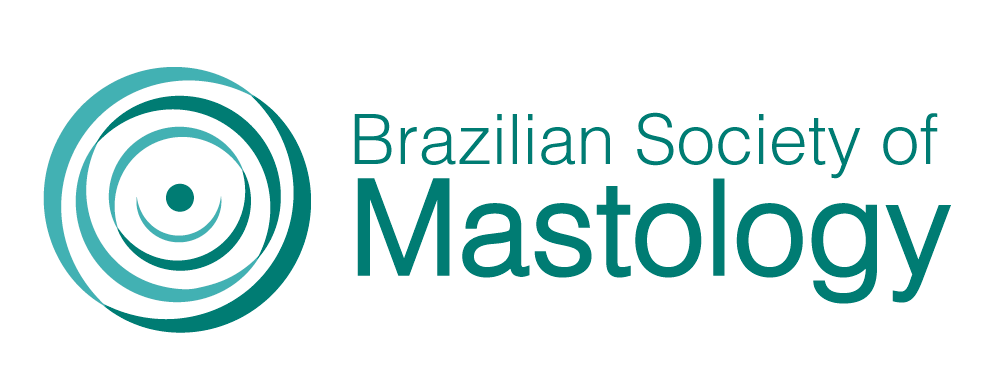ANCESTRY OF BREAST CANCER PATIENTS IN BRAZIL
Palavras-chave:
Breast Cancer, Epidemiology, Genetic Variation, Molecular Pathology, BrazilResumo
Objective: To evaluate the ancestry of breast cancer (BC) patients from different Brazilian geographical regions and to associate it with molecular subtype. Methods: Ethics approval 1136/2016. This was an observational, transversal, epidemiological study, evaluating patients with BC. Molecular characterization of BC was performed by immunohistochemistry. DNA was extracted to evaluate ancestry. For analysis of ancestry, the AIM-INDEL panel was used, with 46 primer pairs. The polymerase chain reaction (PCR) products were subjected to capillary electrophoresis, and the results were analyzed using GeneMapper 4.0 software. For inference of the ancestral profile, the data were evaluated with Structure v. 2.3.3 software. Each participant was classified into one of the following ancestries: European, African, Amerindian, and Asian. Ancestry was tested for correlations with the geographical region and the molecular subtype. The differences were compared using the chi-squared and Kruskal–Wallis tests. SPSS v.20.0 for Windows was used analysis. Results: A total of 1,330 patients were included, out of whom it was possible to evaluate ancestry in 1,127. There was a difference in race, molecular subtype, and ancestry between the geographical regions. In the South region, there were higher rates of selfreported white ethnicity, European ancestry, and HER-2-luminal tumors, which may influence age at diagnosis and yield a higher rate of early tumors. Conversely, in the North and Northeast regions, there was a higher rate of African ancestry, self-reported nonwhite ethnicity, HER-2+ tumors, and triple-negative tumors. Triple-negative and HER-2+ tumors were associated with a higher rate of advanced and metastatic disease at diagnosis, with triple-negative tumors being more frequent in young women. Conclusions: This is the largest assessment of genetic ancestry in the Brazilian BC patients. There were differences in ancestry and molecular subtype between the different regions. Knowledge of these characteristics may contribute to a better understanding of the molecular distribution of cancer in these regions. Grant: FAPESP no 2018/16629-9
Downloads
Downloads
Publicado
Como Citar
Edição
Seção
Licença
Copyright (c) 2021 René Aloisio da Costa Vieira, Débora Sant’Anna, Ana Carolina Laus, Carlos Eduardo Bacchi, René Julias Costa e Silva, Idam de Oliveira-Junior, Rui Pereira, Rui Manuel Reis

Este trabalho está licenciado sob uma licença Creative Commons Attribution 4.0 International License.







